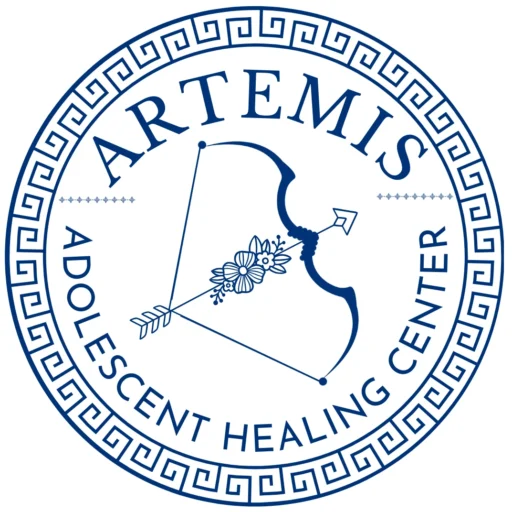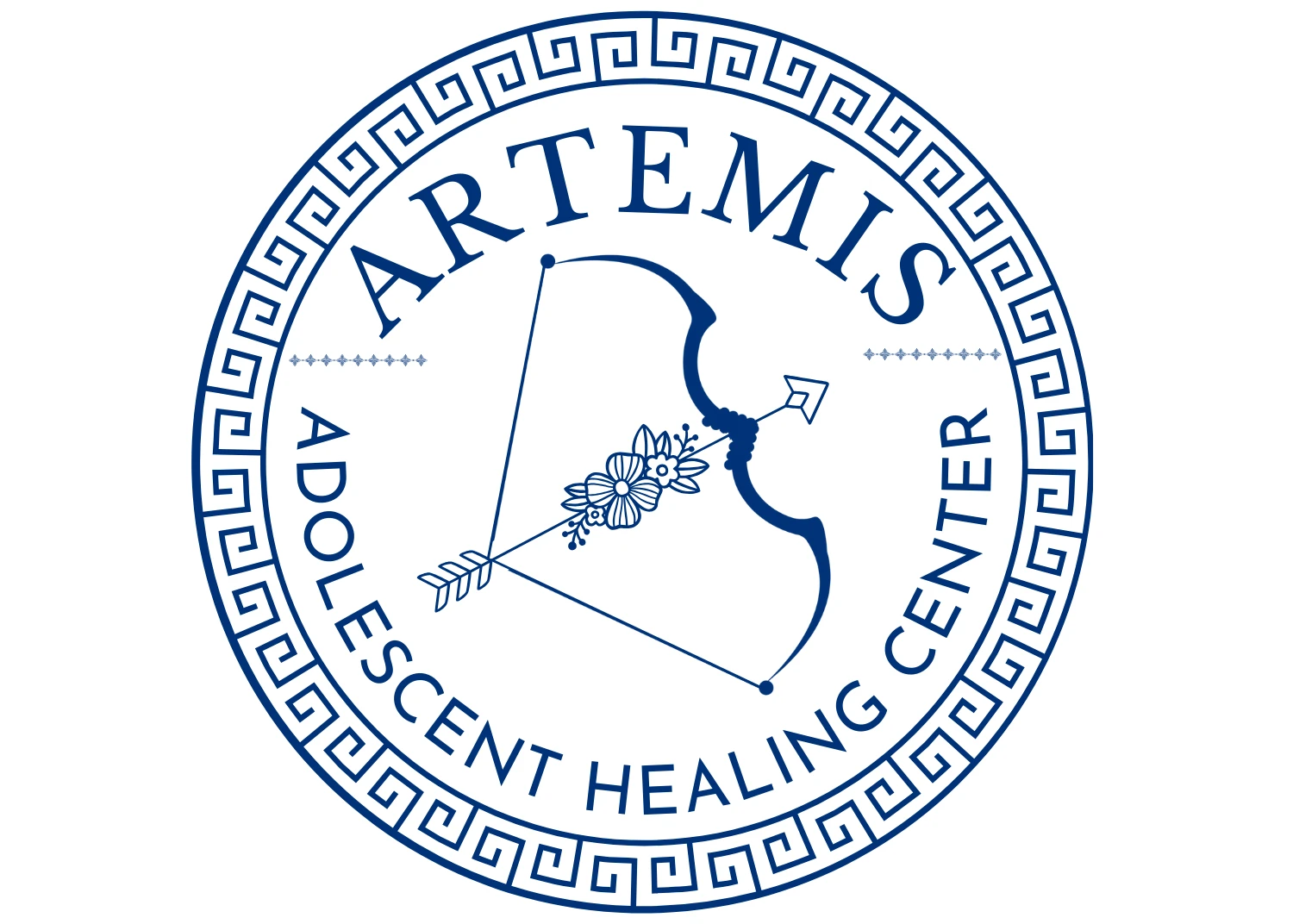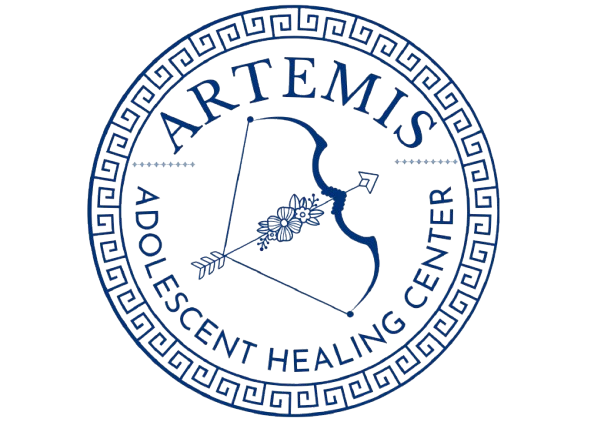Understanding Teen STPD and Effective Treatment Approaches
Every parent wants to believe their teen’s quirks are just part of growing up. But sometimes, something that seems like “just a phase” is a sign of a deeper mental health concern.
Schizotypal personality disorder (STPD) is rare in teens, but when it does occur, it creates serious challenges. It leaves your teen struggling to navigate school, friendships, and family life.
Artemis Adolescent Healing Center has created this resource to help families understand what STPD is, what teen schizotypal personality disorder treatment offers, and most importantly, how hope and healing are possible with the right support.
Get Confidential Trauma and Mental Health Assessment
What Does Schizotypal Personality Disorder in Teens Look Like?
The early signs of schizotypal personality disorder (STPD) in teens are easy to overlook. Your teenager is growing into their own person. They may naturally be private, moody, or eccentric, and it’s easy to brush off most behaviors as “just a phase”.
If your teen is developing STPD, though, these patterns that look like a phase are more persistent and disruptive. You might notice their ideas are wild, or “out there”. Many people with STPD withdraw from social interactions and friendships. They miss social cues and generally struggle with poor social skills.
What are the Symptoms of Schizotypal Personality Disorder in Teens?
It’s hard for a teenager with STPD to connect with their age group because the way they think is so different from the people around them. Some of the most common schizotypal personality disorder symptoms include:
- Behaviors, clothing, or mannerisms that seem odd or eccentric
- Strong social anxiety and discomfort around others
- Paranoia and other perceptual experiences, like the belief that someone is watching them
- Difficulties building and maintaining friendships
- Superstitious or “magical” beliefs, such as believing unrelated events are connected
- Inappropriate or flat emotional responses to everyday situations
Early diagnosis makes a huge difference in teens with schizotypal personality disorder. Be wary of red flags like a distrust of other people or reacting unexpectedly to “normal” events. Several mental health conditions have these symptoms, but all of them benefit from getting treatment sooner.
How STPD Affects Your Teen’s Functioning

Day-to-day life can be overwhelming for your teenager with schizotypal personality disorder (STPD). Since you aren’t there, their teacher is most likely to notice symptoms first.
Your teen may not speak up in class. They’ll likely struggle to trust teachers and other students, and group projects feel impossible. All these things lead to declining grades and confidence.
Friendships are harder because of STPD symptoms like distrust and eccentricity. Rejection (real or perceived) can leave your teen feeling alone, and school becomes an overwhelming place.
At home, your teen may seem less connected. They might argue more, get frustrated, or just act out in ways that leave you feeling confused. Schizotypal personality disorder causes ripples of stress and tension throughout the entire household.
How Common is Teen Schizotypal Personality Disorder?
Schizotypal personality disorder (STPD) is rare in teens. Only 3-4% of the entire population is affected by this mental health condition. And, the similarities between STPD and other mental health conditions make it harder to diagnose.
Experts aren’t sure what exactly causes schizotypal personality disorder. Men are slightly more likely to be diagnosed than women, and genetics, environment, and neurological factors can all play a role. It is most likely to be diagnosed in early adulthood.
STPD vs Paranoid Personality Disorder and Other Mental Disorders
As a parent, it’s easy to feel like your teen’s moods and behaviors are your fault. STPD is a mental health condition that needs treatment. The best place to start for any type of mental health treatment is a proper diagnosis.
Licensed mental health professionals can properly diagnose people with schizotypal personality disorder. From there, treatment can begin. Some other mental health conditions that share symptoms with STPD include:
- Paranoid Personality Disorder (PPD) – Teens with PPD are suspicious and distrustful of others. Schizotypal personality disorder can include paranoia, but it’s also characterized by eccentric beliefs and unusual behaviors outside of paranoia.
- Social Anxiety Disorder – Many teens struggle with anxiety, usually from a fear of judgment or embarrassment by peers. If your teen has schizotypal personality disorder, they’re more likely to be uncomfortable around others because of suspicion instead.
- Schizophrenia Spectrum Disorders: STPD is on the schizophrenia spectrum, but your teen won’t have full-blown hallucinations or delusions. They will still be more grounded in reality than the full-blown psychotic symptoms associated with schizophrenia.
- Schizoid Personality Disorder: Both conditions involve social withdrawal, but schizoid teens prefer isolation and are uninterested in relationships. Teens with schizotypal personality disorder want connection, but their peculiar behaviors and anxious thinking make it hard to maintain relationships.
Each of these mental health conditions requires its own approach to treatment. At Artemis, our team members carefully assess your teen’s history, symptoms, and behavior patterns during intake. From here, we reach a proper diagnosis and start working on a treatment plan tailored to their exact needs.
How is Teen Schizotypal Personality Disorder Treated?

The “right” treatment for schizotypal personality disorder depends on your teen. Every case is different, and we believe treatment should reflect that. Most teens with STPD benefit from a holistic approach involving therapy, family involvement, mindfulness, creative outlets, and sometimes, medication.
At Artemis, we understand how intimidating social situations can be to teens with STPD. We introduce at a gradual pace, respecting your teen’s comfort level. Our approach reduces anxiety and distress. It’s easier for your teen to form a genuine connection with their therapist.
Can Medication Help People with Schizotypal Personality Disorder?
Medication won’t cure your teen’s schizotypal personality disorder, but it can help manage anxiety, depression, and perceptual disturbances. It may be used short-term until your teen learns coping skills to help, or longer when needed.
Any time Artemis recommends medication, it’s paired with therapy. The main goal is always to provide your teen with tools to help them function more comfortably in their day-to-day life.
Get Accredited Treatment Programs at Artemis
What to Expect During Schizotypal Personality Disorder Therapy
Therapy is the backbone of treatment for schizotypal personality disorder and other personality disorders. For teens with STPD, therapy sessions may help with:
- Reducing anxiety in social settings
- Learning communication skills
- Identifying and challenging unusual thoughts
- Building healthier coping strategies
- Learning to feel comfortable asking for help
Group therapy may also be gradually introduced. During group therapy sessions, your teen practices social interaction somewhere that is safe. These skills can eventually be used in personal relationships, too.
Can Mindfulness-Based Cognitive Therapy Help?
Mindfulness-based cognitive therapy blends mindfulness with traditional cognitive strategies. CBT techniques help your teen learn to identify and change unwanted thought patterns.
Mindfulness helps reduce racing thoughts, manage anxiety, and improve emotional regulation. It may be used alone or alongside dialectical behavior therapy, with the goal of managing distress tolerance and addressing poor relationship skills.
What’s the Difference Between Cognitive Behavioral Therapy and Talk Therapy?
Many people have goals when entering therapy, but talk therapy is open-ended. It lets your teen explore feelings, experiences, and relationships. By contrast, cognitive behavioral therapy has a structured, goal-oriented approach.
Usually, a combination is used for treating schizotypal personality disorder in teens. They’ll find emotional support and insight in talk therapy and learn practical skills in CBT.
Treatment Statistics and Outcomes: Is Healing from Schizotypal Personality Disorder Possible?

Your teen can learn to feel whole again, especially with the right support. As they learn to manage symptoms of STPD and any co-existing conditions, they stop hiding their thoughts and withdrawing from loved ones.
They learn to question paranoid and eccentric thinking patterns. Treatment also reduces social anxiety and helps your teen learn how to maintain their close relationships.
Why a Holistic Approach Matters for Schizotypal Personality Disorder
There isn’t any one “key” to mental wellness. Once your teenager’s daily habits, lifestyle, and environment support their mental health, there’s a greater chance of healing. This is why Artemis recommends a holistic, mind-body approach that may involve:
- Physical activity to boost mood and reduce stress
- Creative outlets like art, music, or journaling
- Mind-body practices like deep breathing, mindfulness, and yoga
- Guidance on healthy sleep and nutrition
- Improving relationships and reducing isolation
- Medication (sometimes) to manage severe symptoms
By treating the whole person, holistic care strengthens what your teen is learning in therapy. It builds the foundation for a better future and long-term growth.
Family Support and Involvement for Adolescents With STPD

It’s hard to live with a teenager, and having a teen with schizotypal personality disorder brings extra challenges. Support at home can make all the difference, though. Family therapy sessions for parents and siblings can strengthen communication and bonds among family members.
Parents also learn the best ways to provide support without enabling anxious or eccentric behaviors. Artemis emphasizes this partnership because healing is always stronger when the whole family is involved.
Up To 100% of Rehab Costs Covered By Insurance
Find Help to Heal from STPD at Artemis Adolescent Healing Center
When your teen seems lost in their own world, it’s natural to wonder if it’s just adolescence or something more serious. For more serious concerns related to adolescent mental health, Artemis Adolescent Healing Center in Tucson, AZ, is here to help.
Call us to get your teen the support they need to heal today. We’ll walk with you every step of the way, from proper diagnosis to finding the right blend of therapy, support, and understanding to help your teen thrive.
It is always confidential to call and get supportive options, so please reach out today.






